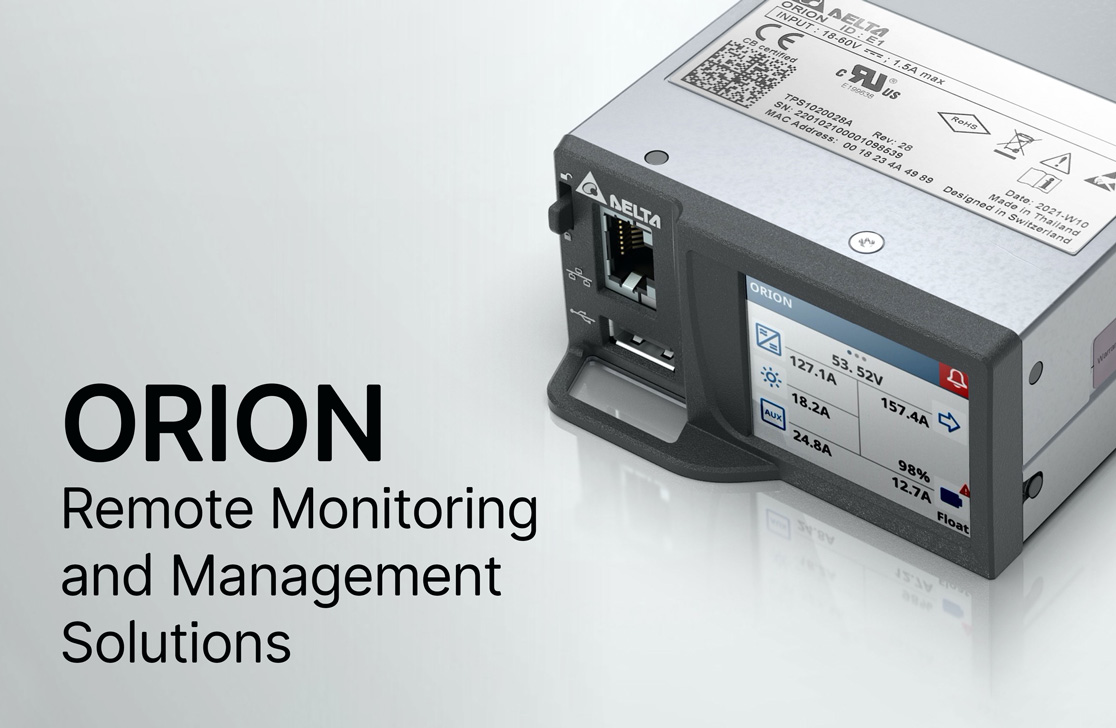Telecoms site backup batteries are a legal requirement in most developed countries – operators need to prove they can keep critical services running during a power outage.
However, compliance comes at a considerable cost. Because the grid is reasonably stable in Europe, you’re typically replacing lead-acid batteries every 7-8 years that are seldom (if ever) used.
So far, so frustrating. But Delta is helping a major European telecoms provider disrupt the status quo with li-ion (lithium-ion) batteries and smart power. And buying grid power so efficiently, its backup batteries come effectively at no cost.
How Smart Power saves you money
Before we zoom in on our case study, here’s a high-level reminder of the various ways Smart Power can save you money:
- Peak Shaving uses preset or on-demand battery energy during peak demand from the grid to avoid charges related to power consumption above a certain threshold.
- Tariff Control is preset or on-demand use of battery energy stored during high-cost hours and recharged during low-cost hours (or via renewables like solar, if available).
- Demand response is on-demand battery energy use to offload a certain amount of energy in a set time period.
Now, let’s see it in action.
Backup batteries: your site’s sleeping giants
Smart power innovations are already invaluable to this particular telecom client, which manages a fleet of 700 sites.
Take the Delta ORION power controller for instance – the mind behind everything from optimizing rectifiers and managing battery health, to connecting all site hardware to the Internet of Things (IoT).
ORION’s unique feature and the source of its true power is the embedded powerful logic processing engine that allows to optimize the whole power system and the way it manages energy. All of this is easily manageable and configurable both locally and remotely.
But in this project, Delta engineers thought even further outside the box. If ORION could unlock the latent power of site backup batteries to buy grid power in the smartest way possible, the potential would be huge: especially when combatting this particular nation’s complex three daily grid power tariffs.
The first step for our operator was investing in cyclic li-ion batteries across 171 test sites, rather than traditional lead acid. And leveraging time-shift functionality followed – discharging the new batteries at 35% at the highest cost tariff between 9 pm-midnight and recharging at the lowest tariff in the small hours.
But what about safety? Smart monitoring mitigates the risk of not being able to meet mandated power backup requirements – the batteries remain ever-ready to kick in and take over if there’s a power outage.

Switch. Save. Take control.
So what kind of savings can you expect from making the switch to li-ion batteries?
Tariffs vary from nation to nation, so results will fluctuate accordingly.
But nonetheless, it’s a clear success for our client: by saving 12%-15% per site, instead of paying for new batteries every 7-8 years, it gets them for free.
Connecting securely via the cloud to MultisiteMonitor (MSM) puts real-time monitoring and control and your fingertips. A server-based software tool, MSM gathers critical operations data from up to 3000 connected sites and stores it in a database to enable real time alarms, monitoring, and maintenance.
With a real-time status view and the ability to monitor multiple sites from anywhere from a remote PC, MSM empowers you to optimize energy management and battery status, check and modify configurations, distribute firmware updates, and maintain a detailed equipment inventory.
All said, this innovative application simplifies offloading a small portion of energy from the grid, or a larger amount in specific groups of sites.
So what could be the impact of these smart power savings at a national and regional level?
Two hour battery backup requirements with 10kW of load means operators have to install 20 kWh batteries ( ~400 Ah) per site. If we multiply this by 3000-5000 sites to reach national level, it equates to 60-100 MW energy stored possibly with one operator per country.
When you consider there are 723,450 telecoms towers across Europe, the potential savings are huge. And the benefits are environmental as well as financial – because optimizing energy use rebalances national grids, thus reducing the strain of energy production.
Flexible and future-proof
Switching to li-ion batteries harnesses smart power way to tackle a complex tariff system – by leveraging a mandatory resource that usually lies dormant. And for any telecoms operator that’s serious about reducing rising energy costs, it’s a real eye-opener.
And there’s more. Because as well as unlocking significant grid power savings, smart power also prepares you for the flexibility market: unlocking all that latent battery potential can be the first step away from grid reliance and towards a renewable future.
So, the next time you’re due to change your site backup batteries, remember to think smart.
If you’re interested in learning more about the potential cost savings of li-ion technology, we invite you to explore further. Feel free to reach out to us by using the contact form below. Our team is here to provide you with additional information and assist you in getting started on your journey to maximize cost efficiency with li-ion technology.







